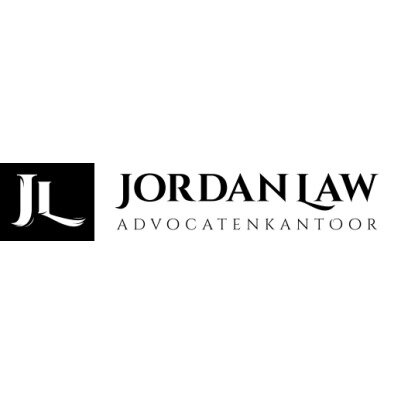Best Labor Law Lawyers in The Hague
Share your needs with us, get contacted by law firms.
Free. Takes 2 min.
List of the best lawyers in The Hague, Netherlands
About Labor Law in The Hague, Netherlands
Labor law in The Hague, and more broadly in the Netherlands, is a comprehensive framework designed to regulate the relationship between employers and employees. It encompasses various aspects such as employment contracts, working conditions, wages, dismissal procedures, and workers' rights. The Netherlands is known for its strong emphasis on protecting employee rights, promoting fair treatment, and fostering harmonious industrial relations. Labor law is influenced by both national legislation and European Union directives, which means that workers in The Hague benefit from high standards of labor protection.
Why You May Need a Lawyer
Several situations may arise where you might require legal assistance in labor law. Common scenarios include disputes over employment contracts, wrongful termination, workplace discrimination, unpaid wages, or unfair labor practices. Legal guidance may also be necessary for negotiating severance packages, seeking advice on collective bargaining, or addressing complex issues such as occupational health and safety breaches. Having a lawyer can ensure that your rights are protected and that you navigate the legal system effectively.
Local Laws Overview
The Hague, like other cities in the Netherlands, is governed by national labor laws which include the Dutch Civil Code and specific labor legislation such as the Working Hours Act, Minimum Wage Act, and Dismissal Law. Key aspects of these laws include:
- Employment Contracts: Contracts can be fixed-term or permanent, and must outline essential terms like job description, salary, and working hours.
- Working Hours: Standard working hours should not exceed 40 hours per week, with regulations in place for overtime and rest periods.
- Minimum Wage: The Netherlands mandates a minimum wage which is subject to regular adjustments, ensuring minimum salary levels.
- Dismissal Protection: Strict rules apply to termination of employment to prevent wrongful dismissal, requiring either mutual consent or approval from the UWV (Employee Insurance Agency).
- Equal Treatment: Laws prohibit discrimination based on gender, age, religion, sexual orientation, and more, ensuring equitable workplace practices.
Frequently Asked Questions
What is the probationary period for a new employee?
The probationary period in the Netherlands is usually a maximum of one month, but can be extended to two months for permanent contracts, provided it is agreed in writing.
Can my employer change my employment contract unilaterally?
No, significant changes to an employment contract generally require mutual consent. Employers must negotiate and justify any alterations.
What should I do if I experience workplace discrimination?
If you face discrimination, report it to your employer or HR department. You may also seek advice from legal professionals or organizations like the Netherlands Institute for Human Rights.
How is overtime compensation determined?
Overtime is often compensated with additional pay or time off, as agreed in employment contracts or collective labor agreements (CAOs).
What are my rights regarding maternity and paternity leave?
Expectant mothers are entitled to 16 weeks of paid maternity leave, while partners can take paternity leave, which includes one week at full pay and an additional five weeks at 70% salary.
How can I legally terminate my employment contract?
You can terminate a contract by providing notice in accordance with the contract terms. Alternatively, termination may be completed by mutual agreement or through legal channels if there's a conflict.
Can I join a trade union?
Yes, employees have the right to join trade unions and participate in collective bargaining regarding working conditions and rights.
What protections are available if I am unfairly dismissed?
Unfairly dismissed employees may challenge the dismissal through legal channels, seeking reinstatement or compensation with the help of a lawyer.
Are there specific regulations for remote working?
While not extensively regulated, frameworks are being considered to better integrate remote work into labor laws, ensuring fair treatment and compensation.
How do collective labor agreements (CAOs) affect my employment terms?
CAOs are negotiated between employers and unions, setting employment terms which can differ from statutory law, often to employees' advantage.
Additional Resources
For further assistance, you can consult these organizations:
- UWV (Employee Insurance Agency): Provides information on unemployment benefits and dismissal procedures.
- FNV (Federatie Nederlandse Vakbeweging): A major labor union offering advice and support on workers' rights.
- Netherlands Institute for Human Rights: Offers guidance and resources for addressing discrimination and human rights issues.
- Legal Aid Board: Provides information about eligibility for subsidized legal assistance in labor disputes.
Next Steps
If you require legal assistance in labor law, consider the following steps:
- Identify the specific area of concern or dispute.
- Gather relevant documentation such as your employment contract, correspondence with your employer, and any legal notices.
- Consult with a legal professional specializing in labor law to discuss your case and explore potential actions.
- Consider seeking initial guidance from trade unions or employee rights organizations if you're a member.
Taking these steps can help you protect your rights and ensure appropriate action is taken to address your employment concerns.
Lawzana helps you find the best lawyers and law firms in The Hague through a curated and pre-screened list of qualified legal professionals. Our platform offers rankings and detailed profiles of attorneys and law firms, allowing you to compare based on practice areas, including Labor Law, experience, and client feedback.
Each profile includes a description of the firm's areas of practice, client reviews, team members and partners, year of establishment, spoken languages, office locations, contact information, social media presence, and any published articles or resources. Most firms on our platform speak English and are experienced in both local and international legal matters.
Get a quote from top-rated law firms in The Hague, Netherlands — quickly, securely, and without unnecessary hassle.
Disclaimer:
The information provided on this page is for general informational purposes only and does not constitute legal advice. While we strive to ensure the accuracy and relevance of the content, legal information may change over time, and interpretations of the law can vary. You should always consult with a qualified legal professional for advice specific to your situation.
We disclaim all liability for actions taken or not taken based on the content of this page. If you believe any information is incorrect or outdated, please contact us, and we will review and update it where appropriate.













